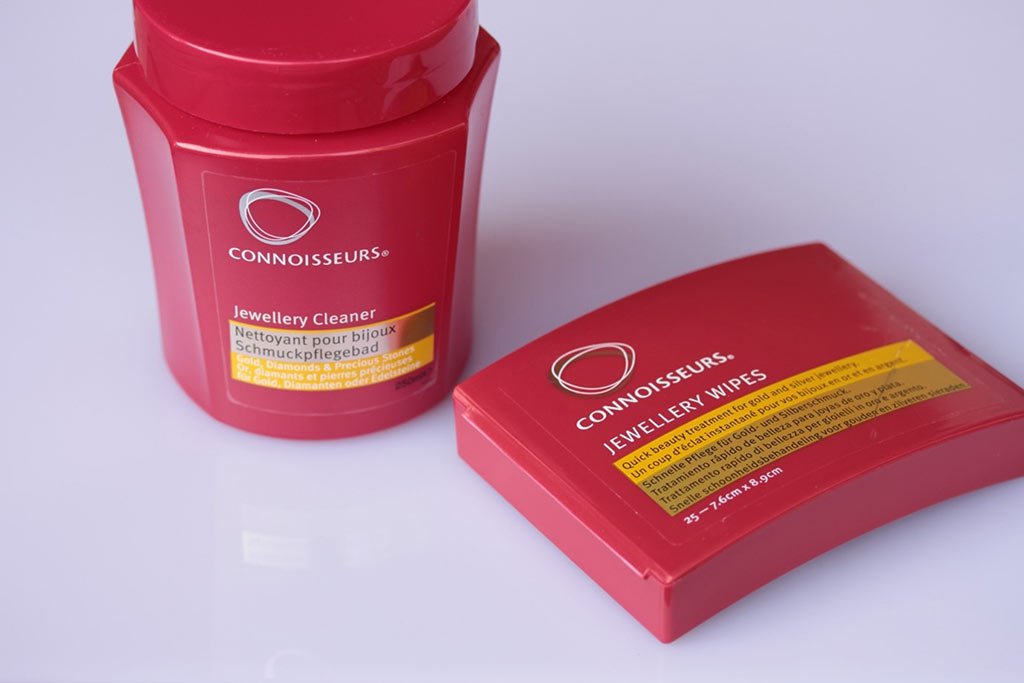Make that shine last forever
To make your fine jewelry last forever in the best shape possible, you must store it properly, clean it often and follow some commonsense precautions.
Read this article for some useful tips.
First Step: store it properly
Moissanites are extremely hard stones, only second to diamonds. This means that only a diamond or another moissanite can scratch them, which is one of the reasons for their shine and spark to last forever and we love them for it. However, it also means you need to protect softer stones (that is, any other stone) from being close to Moissanite jewelry.
To avoid scratches on your softer gems, we strongly encourage you to keep the jewelry case you receive with your order and use it for the preservation of your jewelry.
Second step: keep it clean
Stud earrings, engagement rings, wedding bands… Many of us never take them off! Nevertheless, to make them look their best, some sporadic cleaning is needed. Two to three times per week for everyday jewelry, and per use for occasional jewelry.
Using the right cleaning strategy for each metal and stone is key for successful results. For this reason, know your metals and stones.
Know your stones
We sell moissanites, rubies, sapphires and emeralds. From all of them, emeralds are the most delicate ones.
Cleaning your stones (safe for all)
For sporadic cleaning at home, you can soak your jewelry in warm water with a mild soap and gently scrub with a soft toothbrush or cloth. Once clean, rinse off any soap residue and dry with a lint-free cloth. You can use the cloth that comes with our packaging for this last step.
Remember:
- If you are doing this in the sink, remember to close the drain first.
- Do not use that toothbrush for anything else.
- Careful with the soap you use. Harsh chemicals might damage the setting.
- If you are unsure about which soap to use, know that there are multiple jewelry cleaning products safe to use.

Other Stones
Sapphires and rubies are third in hardness with 9 on the Mohs hardness scale and therefore more susceptible to damage than moissanites or diamonds.
Emeralds, while considered a precious stone, are a rather soft stone and, therefore, they are a great choice for special occasions but a poor choice for daily wear. For this reason, you will not find an emerald ring in our Engagement rings section.
For all these stones, clean with warm water, give them a gentle brush, rinse and dry with a lint-free cloth.
Ultrasonic cleaning, safe for moissanites
Many jewelers offer this service. Moissanites can stand this type of cleaning but be careful with Trilogy earrings/rings or any design where the girdles of the stones might be touching or very close to each other, as they could hit each other and chip. Once per year.
Get rid of the so-called oil-slick
Diamonds and cubic zirconia are well known for being grease magnets, and the greasy film on top of them can affect their appearance and their brilliance.
Moissanite behaves better than these stones and keeps sparkling despite prints of grease or dirt; however, over time, might develop an organic build-up or “film” usually referred to as the oil-slick, which can be visible and interfere with the look of your stone. It is not harmful to the gemstone and it can be easily removed with silversmith polish that can be found in your local hardware or grocery store.
Third step: avoid exposure to chemicals and impacts
Other than emeralds, which are rather soft, all our stones are hard enough for daily wear. Hardness in gemology means resistance to scratch. Many people get confused and believe is resistance to impact. For that, gemologists use the word toughness.
Despite moissanite, rubies and sapphires are tougher than diamonds, they are still gemstones. All gems are fragile, and they might break if they are hit.
Likewise, metals such as gold are malleable and can get scratched easily.
For these reasons, you should avoid wearing your jewelry whenever there is a risk of hits, scratches or exposure to chemicals.
For most domestic tasks, there should be no problem. For labor intensive housework, better to take off. If you use cleaning products, use gloves.
Likewise, when it comes to exercising, avoid using fine jewelry when swimming. While pure gold is not easily damaged by chlorine, other metals of the alloy can be subject to damage. Salt water can also damage jewelry and affect the appearance of the stones.
As a rule of thumb, if in doubt, take it off.


